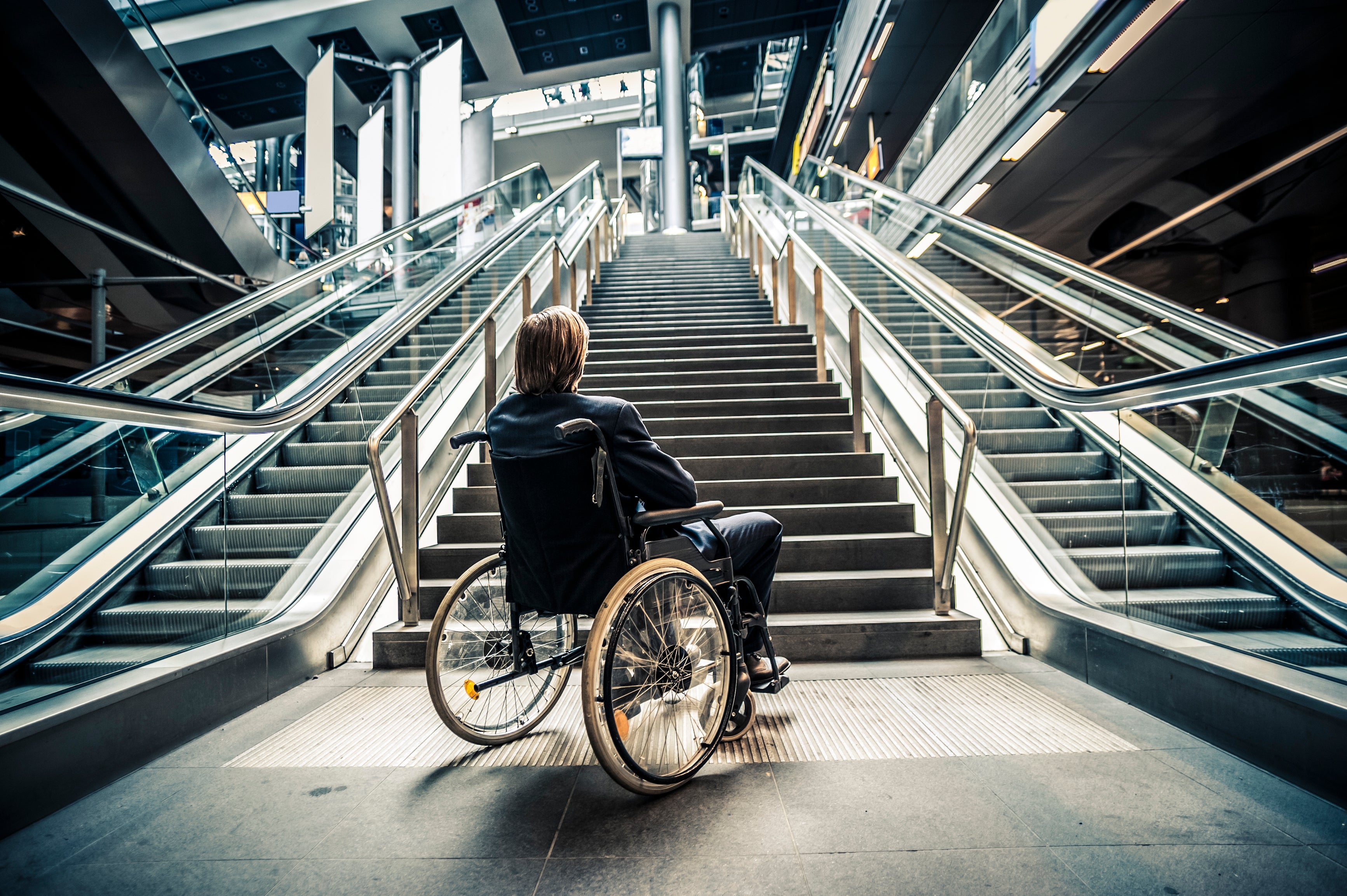Co-working spaces with cinemas, panoramic roof terraces and sleep pods – but not for people like me
If you have a disability you can never just go somewhere. The hard reality is that disability rights remain at the back of the queue


“We would love to offer you a tour and complimentary day pass at premium flexible co-working space X,” gushed the email.
I don’t know what the bold type was all about. Perhaps I was supposed to go: Wow, bold type! This must be AWESOME.
Usually this is the sort of communication that merits an automatic delete before I turn my attention to something that actually matters. Or to the coffee machine. But for some reason – maybe it was indeed the bold type – I read on. I discovered that the company’s spaces “offer unique stand-out amenities, some of which include 360 roof terraces, a cinema room and sleeping pods”.
I learned about how brilliant flexible co-working can be, and the tip-top clients X works with. And so on, until I realised that something was bothering me beyond the over-the-top sales pitch and the presumption that I would be willing to produce (God forbid) something similarly vapid in the form of a review if I said yes please to the day pass.
The itch I couldn’t scratch was created by a missing word: accessible. Or a phrase: fully accessible. Disabled-friendly. Or anything similar.
“Dynamic spaces” this lot apparently have. But “fully accessible dynamic spaces”? I’ve no idea. Maybe that’s what they are. Maybe the cinema has a wheelchair space and closed captioning. Maybe these are “tailored workspaces for forward thinkers” that recognise the fact that forward thinkers sometimes live in bodies that present the odd challenge, and they are set up to take this inconvenient truth into account.
If so, then I might actually be inclined to test my editors’ patience by writing something like “Jesus Christ, this lot actually get it” in my copy. The trouble is, most don’t.
I’ve been to lots of offices in London since acquiring my mobility impairment – some old, some new.
I’ve grown used to the side door you have to use while everyone else strides through the revolving doors. I’ve got into the habit of greeting the glowering security guard who has to open it for me with a winning smile. I’ve sometimes explored the bowels of buildings that no one else gets to see, and used lifts that other employees are completely unaware of. The older buildings are invariably the worst. But even modern ones aren’t always what you might call friendly to the differently abled.
The people that build them comply with the regulations, but the fact that Britain has several million disabled people, and some of us like to work, too often passes them by, probably because so few of us get to do that. Work, I mean. The disability employment gap is a chasm.
It’s not just workplaces. If you have a disability, you can never just go somewhere. You have to call ahead. And if no one answers, and these days they often don’t, you have to surf the internet. Send endless emails. Sometimes it takes a little light Twitter trolling to get the required information.
In other words, you have to complete a virtual obstacle course before embarking on the very real obstacle course of getting around Britain.
To keep up to speed with all the latest opinions and comment, sign up to our free weekly Voices Dispatches newsletter by clicking here
I still vividly remember going for a drink with an old friend who was working in Germany, who shook his head when I explained my world to him. “Just wouldn’t be allowed where I live,” he said.
Is that terribly surprising? The British government has been lying about being a world leader in disability rights, just as it has been lying about everything else. The hard reality is that disability rights remain at the back of the queue. The debate about it is rarely aired beyond myself and a few other shouty columnists. We’re rarely seen. Where it does exist, representation is depressingly tokenistic.
All this helps to explain why even hippy workplaces, whose vacant PRs bang on about “sleeping pods” and “360 roof terraces” – shouldn’t that be “360-degree roof terraces”?– never use the phrase “fully accessible” when they’re creating their blurbs.
It’s all about mind, body and soul. But if your body doesn’t work quite the same way as other people’s do? Pipe down, you damn cripples! Where’s your positivity gone?
PS: When I mentioned this (admittedly rather bluntly) in an email, I didn’t get a response, either accessible or otherwise. See what I mean?
Join our commenting forum
Join thought-provoking conversations, follow other Independent readers and see their replies
Comments
Bookmark popover
Removed from bookmarks